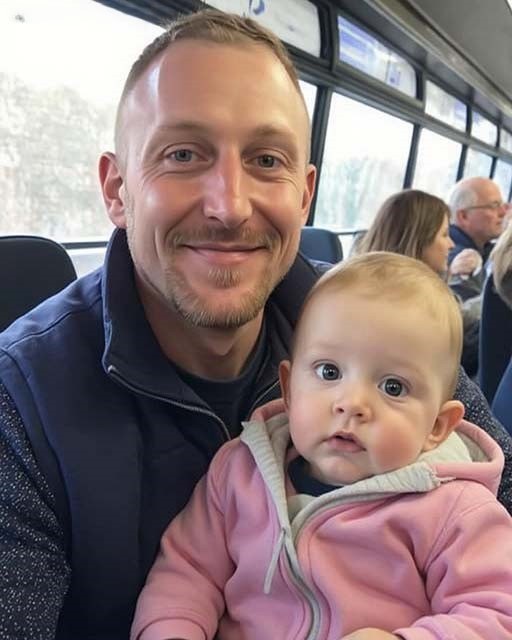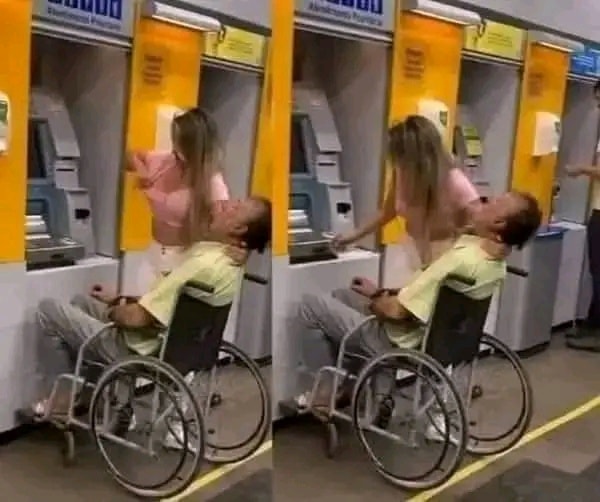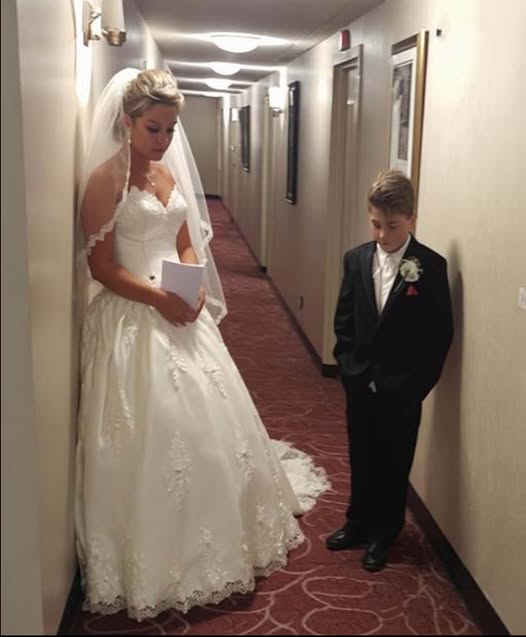It was one of those gray Seattle mornings where the sky felt like it had given up. The clouds hung low, heavy with silence and drizzle. I was riding on half a tank of sleep, guiding my daughter Maya through the chill in her stroller. She was only one, warm beneath her blanket, cheeks flushed from a fever that had lasted through the night. Every soft whimper twisted in my chest. We were on our way to the clinic. Formula, wipes, spare clothes—I had double-checked the diaper bag. I told myself we were okay. I told her too. “Almost there,…It was one of those gray Seattle mornings where the sky felt like it had given up. The clouds hung low, heavy with silence and drizzle. I was riding on half a tank of sleep, guiding my daughter Maya through the chill in her stroller. She was only one, warm beneath her blanket, cheeks flushed from a fever that had lasted through the night. Every soft whimper twisted in my chest.
We were on our way to the clinic. Formula, wipes, spare clothes—I had double-checked the diaper bag. I told myself we were okay. I told her too. “Almost there, sweetheart,” I whispered. “We’ll fix this.”
The bus groaned to a stop. I hauled the stroller up the steps, catching a scowl from the driver.
“Come on,” he snapped. “Not a nursery on wheels.”
“She’s sick,” I said, struggling. “Just a second.”
I got us into a corner seat and tried to ignore the heat rising in my face. Maya stirred but stayed quiet. I touched her forehead—still hot.
Then she boarded.
She looked like she’d walked out of another century. Flowing skirts, bangles up her arms, a shawl wrapped around wild gray curls. She stood at the fare box, trembling fingers counting change. Her voice was faint. “I don’t have enough,” she said. “Please. I’m Madam Vega. I read futures. I can offer a reading.”
The driver scoffed. “Lady, I need money, not magic.”
She turned, searching the faces on the bus. Her eyes locked on mine. There was fear in them. Not fear of being denied a ride—but something deeper, older.
“Either pay,” the driver said, “or get off.”
I stood. “I’ve got it.”
He grunted, took my money. Madam Vega nodded once, grateful, then took a seat in the back. But I could feel her gaze linger.
We rode in silence. Rain tapped the windows. Maya whimpered again, shifting under her blanket. I whispered to her, brushing her hair back, willing her to be okay.
When it was time to get off, I pushed the stroller toward the door. As I passed, Madam Vega reached out and gently touched my arm.
“You didn’t have to help me,” she said softly. “But you did. You already carry more than you know.”
Then she pressed a folded piece of paper into my hand. “Take this. You’ll need it. Pain leads to truth. And truth… brings peace.”
Before I could say anything, the driver barked at me to move, so I tucked the note into my jacket and forgot it.
The clinic was loud with crying children and exhausted parents. Maya drifted in and out of sleep in the waiting room. “Carter?” a nurse called.
Inside the exam room, as I sank into the plastic chair, I remembered the note. I unfolded it.
“SHE’S NOT YOUR DAUGHTER.”
I stared at the words. I reread them. Then again.
No.
I blinked hard, as if that could erase it. A prank? A mistake? Some weird psychic theater?
But I couldn’t stop hearing those words. Not when the nurse smiled and said, “She’s got your eyes.”
The next few days, I tried to shake it. I told myself it meant nothing. I had been there the day she was born. I’d cut the cord. I’d held Rachel’s hand. But the doubt crawled under my skin like a splinter. I didn’t want to believe it. But I couldn’t let it go.
One night, I ordered a DNA test. I hated myself for it. I hated that I needed to know.
“This is crazy,” I said aloud as the test processed. “She’s mine.”
But the results came back a week later.
Not a match.
I sat on the kitchen floor, paper in hand, trying to breathe. Maya sat in her high chair, smearing applesauce on her face, completely unaware that my world had just split again.
I drove to Rachel’s mother’s house. Helen greeted me with warmth, but it melted the moment she saw my face. I held out the report. “Did you know?”
She looked down. Her silence answered for her.
“She told me,” she whispered. “Before she passed. She wasn’t sure. She made a mistake. She wanted to tell you but ran out of time.”
I could barely breathe. “And you didn’t? You let me raise a child who might not even be mine? You watched me mourn her, build a life around her—”
“She loved you,” Helen cried. “She wanted you to be her father. And you are.”
I left without another word.
That night, I sat beside Maya’s crib. She was asleep, curled around her elephant plush like always. I watched her chest rise and fall. I thought of all the firsts: her first laugh, her first steps, her first word—”Da-da.”
I reached for her tiny hand.
“You’re not mine,” I whispered. “Not by blood. But I held you through every fever. I changed every diaper. I stayed. I never walked away.”
She stirred and smiled in her sleep.
“I don’t care what the test says,” I told her. “You’re mine. Because I choose you. Every day.”
And in that moment, the note lost its power.
Because family isn’t always about biology. It’s about showing up. It’s about who holds your hand when you’re scared. Who feeds you when you can’t ask. Who chooses you—even after the truth.
Madam Vega was right. Pain brings truth. But truth, when met with love, brings peace.
I tucked the blanket around Maya’s shoulder and whispered, “Sweet dreams, baby girl. Your dad’s right here. Always.”



